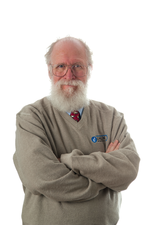Understanding the importance of FOSS
More than Technology

maddog ponders the ways in which FOSS is more than just technology.
A short time ago, a former colleague from Digital Equipment Corporation sent me a message. He wanted to gather a group of "Free Software People" to come and talk to his well-known company about how they could better integrate their code into the Free Software world. The people he wanted to attend included Bdale Garbee, Jim Zemlin, Linus Torvalds, and myself.
I was honored to be included in this gathering of FOSS names, but I questioned whether this was truly a learning experience or a marketing event for his company. After all, just one of these people (any one of them) could have given him a wide range of help in steering his company onto the Free Software path, and even different people might have been more helpful from a technical side. If someone really wanted to understand Free Software and how to work with it, there are also many articles and books available. I dare say there are even many people in his own company that already know about Free Software, how to use it, and how to work with the community in creating more Free Software. He did not need five or six outsiders to come into his company just to tell them how to work with the community on FOSS.
It was at this point, the conversation started to go downhill, and eventually he said the fateful words, "maddog, it is not a religion, it is just a technology."
[...]
Buy this article as PDF
(incl. VAT)
Buy Linux Magazine
Subscribe to our Linux Newsletters
Find Linux and Open Source Jobs
Subscribe to our ADMIN Newsletters
Support Our Work
Linux Magazine content is made possible with support from readers like you. Please consider contributing when you’ve found an article to be beneficial.

News
-
Zorin OS 18 Hits over a Million Downloads
If you doubt Linux isn't gaining popularity, you only have to look at Zorin OS's download numbers.
-
TUXEDO Computers Scraps Snapdragon X1E-Based Laptop
Due to issues with a Snapdragon CPU, TUXEDO Computers has cancelled its plans to release a laptop based on this elite hardware.
-
Debian Unleashes Debian Libre Live
Debian Libre Live keeps your machine free of proprietary software.
-
Valve Announces Pending Release of Steam Machine
Shout it to the heavens: Steam Machine, powered by Linux, is set to arrive in 2026.
-
Happy Birthday, ADMIN Magazine!
ADMIN is celebrating its 15th anniversary with issue #90.
-
Another Linux Malware Discovered
Russian hackers use Hyper-V to hide malware within Linux virtual machines.
-
TUXEDO Computers Announces a New InfinityBook
TUXEDO Computers is at it again with a new InfinityBook that will meet your professional and gaming needs.
-
SUSE Dives into the Agentic AI Pool
SUSE becomes the first open source company to adopt agentic AI with SUSE Enterprise Linux 16.
-
Linux Now Runs Most Windows Games
The latest data shows that nearly 90 percent of Windows games can be played on Linux.
-
Fedora 43 Has Finally Landed
The Fedora Linux developers have announced their latest release, Fedora 43.

